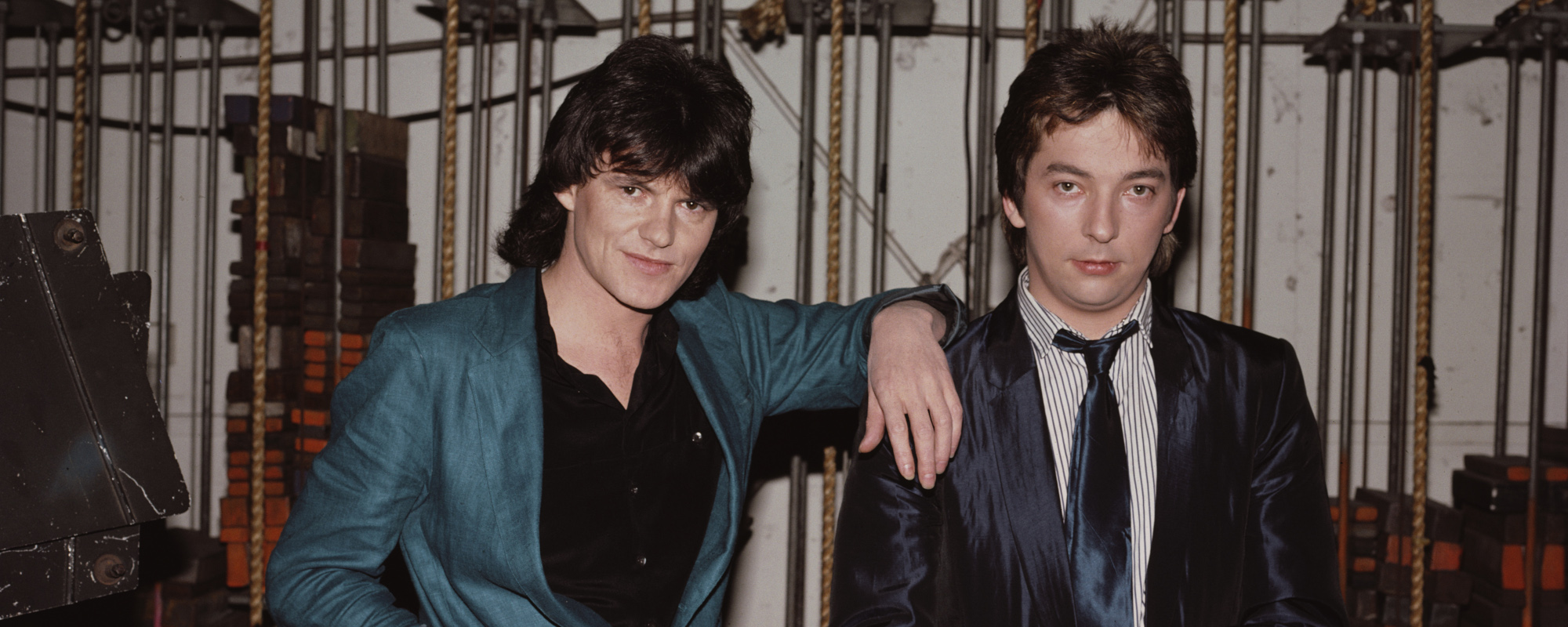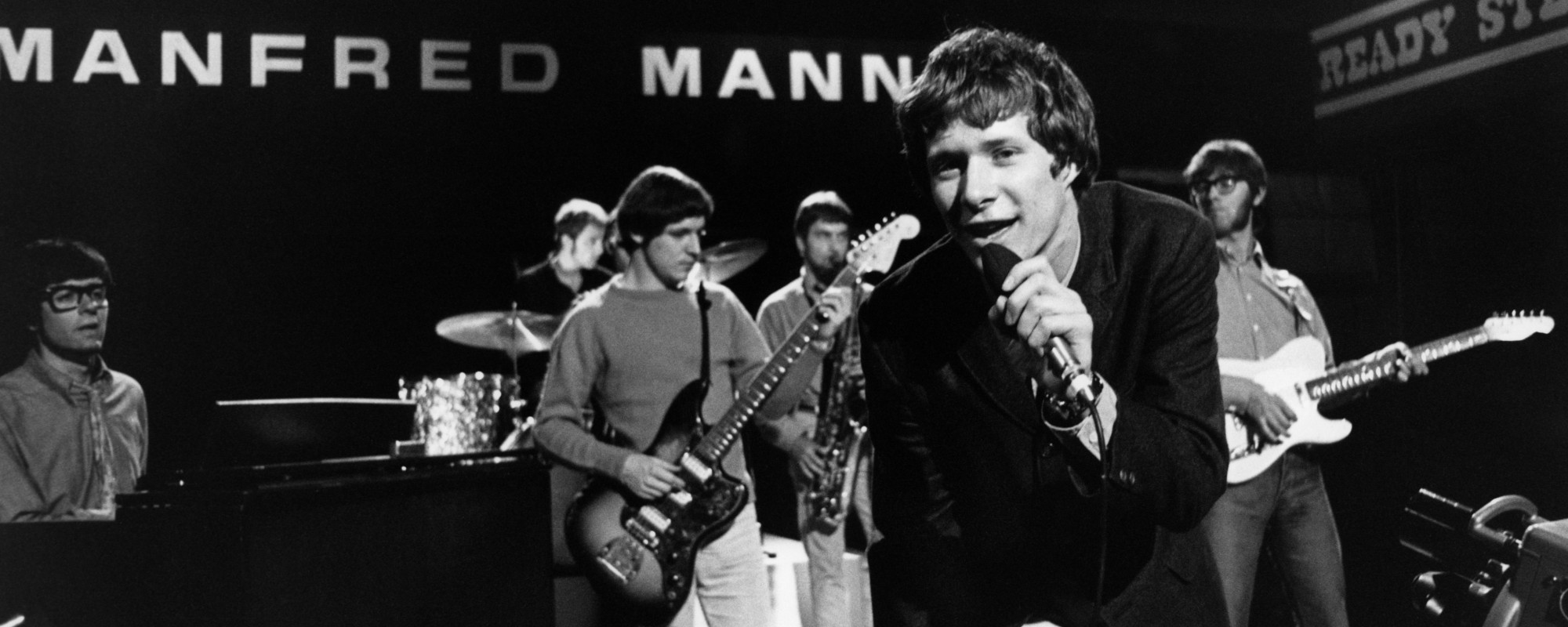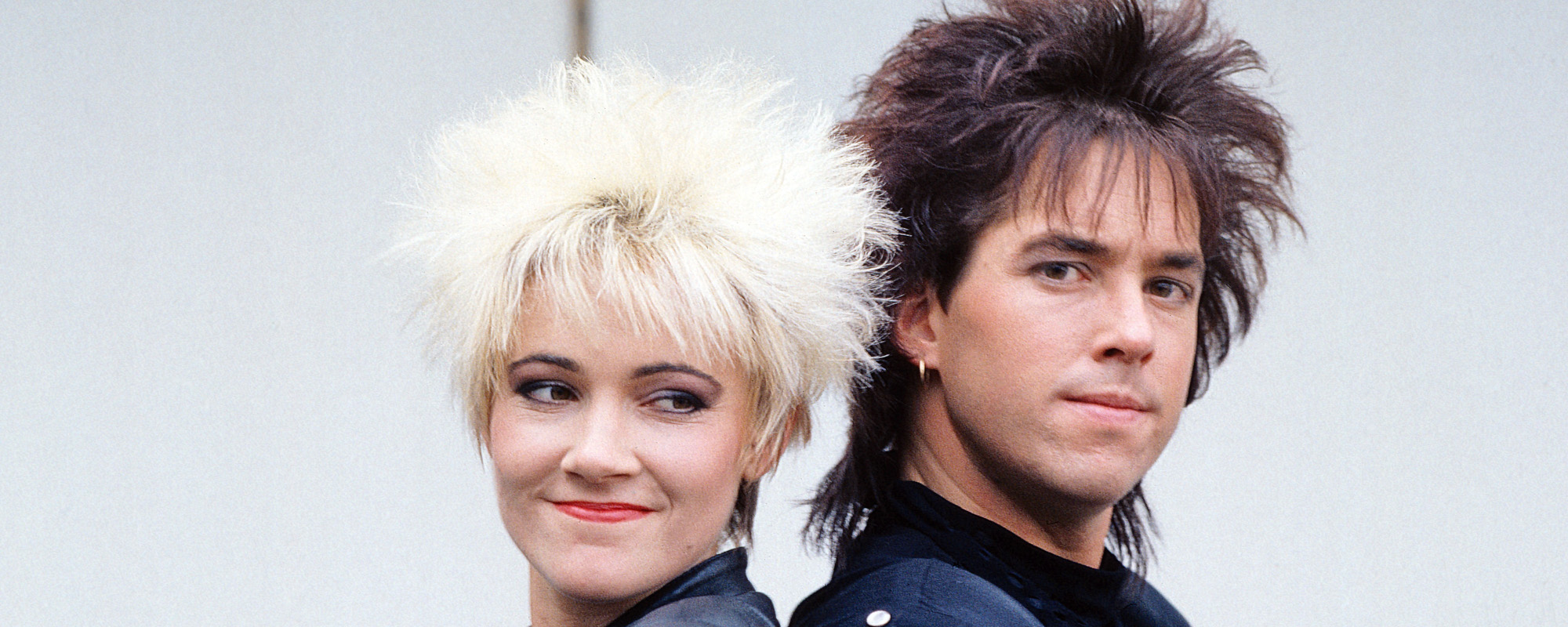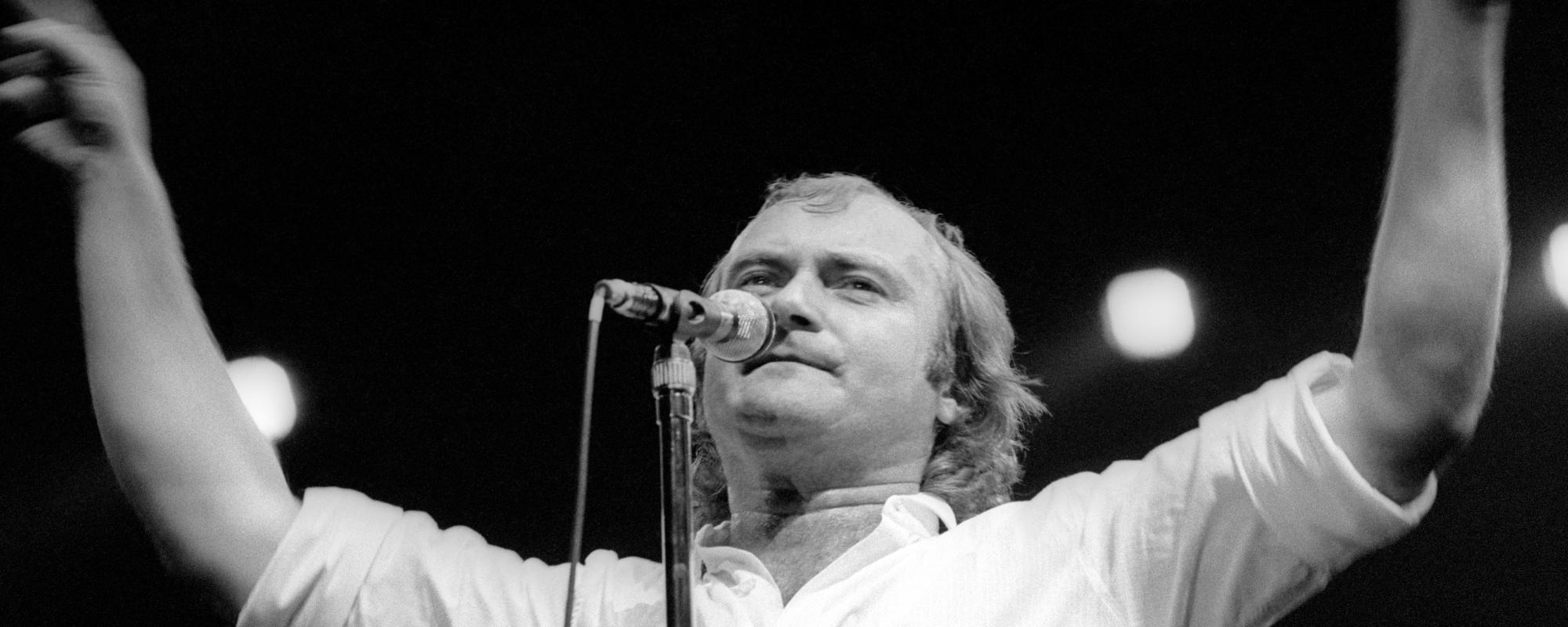In the dark of London’s Casino Cinerama, a 22-year old David Bowie stared at the space embryo floating across the theatre’s huge 70mm screen. It was summer 1968, and this was the third time the singer-songwriter had been to see 2001: A Space Odyssey.
Videos by American Songwriter
“It was the sense of isolation I related to,” Bowie told me in 2003. “I found the whole
thing amazing. I was out of my gourd, very stoned when I went to see it, several times,
and it was really a revelation to me. It got the song flowing.”
While Kubrick’s film provided the setting and title for Bowie’s first Top 10 hit, “Space Oddity,” there were other inspirations shaping the song’s sound and vision. That summer, Bowie was hooked on Simon & Garfunkel’s Bookends album—especially “Old Friends,” whose breezy major 7th chords he borrowed for the “tin can” section of his song. More significant was the downward spiral of Bowie’s relationship with his actress girlfriend, the whimsically named Hermione Farthingale. “It was Hermione who got me writing for and on a specific person,” Bowie said. Their break-up would yield a handful of songs, but the lonely void that Bowie felt in her absence found its perfect metaphor in the marooned capsule of Major Tom.
While Bowie never commented on the origin of his astronaut’s name, there is one intriguing theory. As a kid growing up in Bromley, he saw posters advertising the well- known music hall performer Tom Major (father of Prime Minister John Major), and the name lodged in his brain. Whatever the source, Major Tom became the first in a long line of mythic characters to float through Bowie’s musical universe, and one who would return to haunt 1980’s hit “Ashes To Ashes.”
With the song’s neatly designed, rocket-like structure in place—it had seven distinct sections as opposed to the three or four of most hits—Bowie cut a demo in late 1968 for the short promotional film Love You Till Tuesday. That version, thin and reedy, with Bowie mimicking the spaceship sounds himself, failed to chart. But it got him signed to Mercury. When he went to recut the song, Bowie assumed that he’d be working with his friend and producer Tony Visconti. But Visconti hated “Space Oddity,” calling it “a cheap shot—a gimmick to cash in on the moon shot.” Into the breach leapt Visconti’s young engineer Gus Dudgeon.
“In those days, a gimmick was a big deal,” Dudgeon said. “Bowie’s was that he’d written a song about being in space at a time when the American moon shot was about to take place. I listened to the demo and thought it was incredible. I couldn’t believe that Tony didn’t want to do it.”
Recorded on June 20, 1969 at Trident Studio, the song was plotted out with the precision of a space launch. From the well-timed entrances of Herbie Flowers’ bass and Rick Wakeman’s Mellotron to the controlled chaos of the lift-off and the spooky distress calls dotting the outro (made by a toy instrument called a Stylophone), the clever arrangement went far beyond the original demo. Dudgeon mixed the track in stereo, which was almost unheard of for radio singles at the time.
The record was rush-released on July 11th , nine days ahead of the Apollo 11 moon landing. Copies were air-mailed to US disc jockeys. But despite the efforts to piggyback on NASA’s moment of glory, the song got little play in the states. The reception in England was much warmer.
“It was picked up by British television and used as the background music for the landing itself in Britain,” Bowie said. “Though I’m sure they really weren’t listening to the lyric at all. It wasn’t a pleasant thing to juxtapose against a moon landing. Of course, I was overjoyed that they did. Obviously, some BBC official said, ‘Oh, right then, that space song, Major Tom, blah blah blah, that’ll be great.’ Nobody had the heart to tell the producer, ‘Um, but he gets stranded in space, sir!’”
“Space Oddity” won the Ivor Novello Award in 1969 for songwriting excellence, and acted as a kind of a scouting mission for the fame that would come in 1972 with Bowie’s extraterrestrial Ziggy Stardust. The song has been covered by over twenty artists, including Def Leppard, Tangerine Dream and Cat Power, and featured in the video game Rock Band 3.
Intergalactic lullaby, break up tune, NASA tie-in—“Space Oddity” is all this and more. A five-minute, wildly inventive story song which christened Bowie’s fertile decade of ground-breaking pop.
Bowie said, “When I originally wrote about Major Tom, I thought I knew all about the great American dream and where it started and where it should stop. Here was the great blast of American technological know-how shoving this guy up into space, but once he gets there he’s not quite sure why he’s there. And that’s where I left him.”








Leave a Reply
Only members can comment. Become a member. Already a member? Log in.